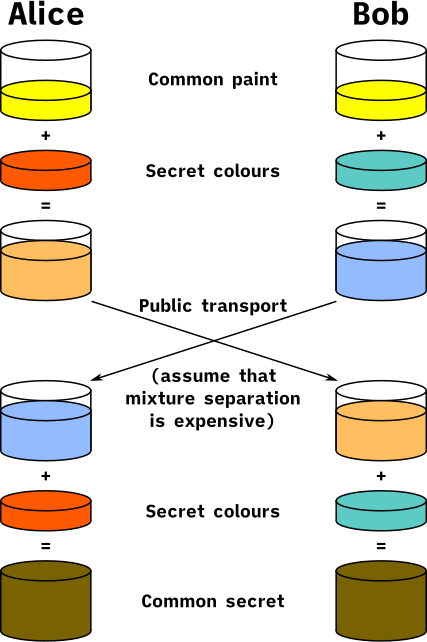Hi, a little background information first, when debugging ble mesh example 0.9.x:
I'm now kinda having a massive problem with this function:
bool prov_utils_confirmation_check(const prov_common_ctx_t * p_ctx)
{
uint8_t confirmation_key[NRF_MESH_KEY_SIZE];
/* ConfirmationKey = k1(ECDHSecret, ConfirmationSalt, "prck") */
enc_k1(p_ctx->shared_secret,
NRF_MESH_ECDH_SHARED_SECRET_SIZE,
p_ctx->confirmation_salt,
CONFIRMATION_KEY_INFO, CONFIRMATION_KEY_INFO_LENGTH,
confirmation_key);
uint8_t random_and_auth[PROV_RANDOM_LEN + PROV_AUTH_LEN];
memcpy(&random_and_auth[0], p_ctx->peer_random, PROV_RANDOM_LEN);
memcpy(&random_and_auth[PROV_RANDOM_LEN], p_ctx->auth_value, PROV_AUTH_LEN);
/* Confirmation value = AES-CMAC(ConfirmationKey, LocalRandom || AuthValue) */
uint8_t confirmation[PROV_CONFIRMATION_LEN];
enc_aes_cmac(confirmation_key,
random_and_auth,
PROV_RANDOM_LEN + PROV_AUTH_LEN,
confirmation);
//int result = memcmp(confirmation, p_ctx->peer_confirmation, sizeof(confirmation)) == 0;
int result = memcmp(confirmation, p_ctx->peer_confirmation, sizeof(confirmation));
return result;
}
My question are these:
#Question No.1
The function in question gets called in :
case PROV_PDU_TYPE_RANDOM
But what does this case mean? Why would there be a "RANDOM" payload unit? I completely failed to get the point. For encryption purposes?
#Question No.2
I'm completely lost on these lines:
uint8_t random_and_auth[PROV_RANDOM_LEN + PROV_AUTH_LEN];
memcpy(&random_and_auth[0], p_ctx->peer_random, PROV_RANDOM_LEN);
memcpy(&random_and_auth[PROV_RANDOM_LEN], p_ctx->auth_value, PROV_AUTH_LEN);
And
memcmp(confirmation, p_ctx->peer_confirmation, sizeof(confirmation));
The only possible explanation I can think of is this:
- Provisioner send me (provisionee) a random payload (thus "case PROV_PDU_TYPE_RANDOM") which somehow I knew what it is.
- In the same payload, provisioner also managed to slip in some confirmation information.
- I perform an encryption operation based on the confirmation information provisoner sent me, and come up independently with my own results.
- I compare the results with the result I should GET which provisioner sent me and see if the two are completely identical. If they are, then great I can proceed further because no future problem will emerge in our encrypted communications, if not, then I stop because I will not properly decode whatever message provisioner send me.
Is my guess correct? If not, what is it really for?
The result of this function is consistently "-86", can anyone shed some light???


